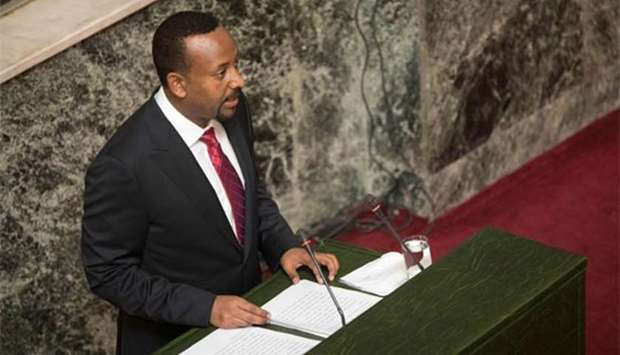Ethiopia's parliament swore in Abiye Ahmed as prime minister on Monday with a mandate to implement democratic reforms aimed partly at defusing ethnic tensions in the Oromiya province from which the former army lieutenant general hails.
The ruling coalition picked Abiye last week to replace Hailemariam Desalegn who quit to clear the way for reforms.Oromiya, which surrounds the capital Addis Ababa, has been rocked by violence since 2015. This is fuelled largely by a sense among young members of the Oromo ethnic group, which makes up roughly a third of Ethiopia's 100 million population, that they are politically and economically marginalised.
Abiye, 42, took the oath of office in a ceremony at the House of People's Representatives in Addis Ababa.
"Today is a historic day. We bear witness to a peaceful transfer of power. Today our situation presents us with opportunities and threats. Today we are in the midst of uncertain times," Abiye said in a speech to parliament.
The ruling Ethiopian People's Revolutionary Democratic Front (EPRDF) has been in power since 1991, when it took over from the Derg military regime. But the protests and unrest in Oromiya have posed the biggest ever threat to its continued rule.
Abiye's Oromo heritage appears to be a calculated attempt to soothe tensions in his home region.
Human rights groups say that security forces have killed hundreds of people in violence.
Tens of thousands were also jailed. But in the run-up to Haliemariam's resignation, more than 6,000 prisoners had been freed as the government struggled to calm discontent.
Ethiopia, which is Africa's second most populous nation and also has had the continent's fastest growing economy over the past decade, has been under a state of emergency since February 16, the day after Hailemariam resigned.



